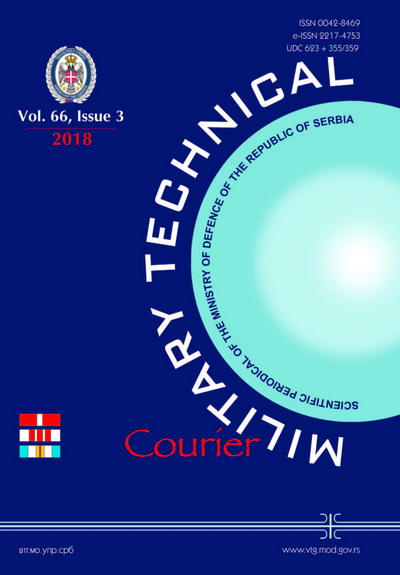Realization of TCP Syn Flood Attacks using the Kali Linux
Abstract
Denial-of-Service (DoS) is a type of attack that attempts to prevent legitimate users from accessing network services. This is accomplished by overloading network services or by excessive connectivity, causing a drop in a connection or a service. DoS tools are designed to send large numbers of requests to the targeted server (usually web, FTP, e-mail server), in order to overwhelm server resources and make it unusable. There are various ways in which attackers achieve this. One of the usual ways is simply overwhelming the server by sending too many requests. This will disable the normal functioning of the server (and the web pages will open more slowly), and in some cases it can lead to a situation that the server ceases to operate. This paper shows some effects of TCP Syn Flood Attacks (using Kali Linux) through the change of processor utilization and the unavailability of the target computer (executing ping command).
References
Allen, L., Heriyanto, T. & Ali, S. 2014. Kali Linux – Assuring Security by Penetration Testing. Birmingham, UK: Packt Publishing, pp.14-28.
Ansari, A.J. 2015. Web Penetration Testing with Kali Linux. Birmingham, UK: Packt Publishing, p.4.
Beggs, R.W. 2014. Mastering Kali Linux for Advanced Penetration Testing. Birmingham, UK: Packt Publishing, pp.315-316.
Hertzog, R., Aharoni, M., & O'Gorman, J. 2017. Kali Linux Revealed: Mastering the Penetration Testing Distribution. Offsec Press.
Lawrence, C.M. 2012. DDoS For Dummies, Corero Network Security Edition. [e-book]. Hoboken, New Jersey: John Wiley & Sons. Available at: http://crezer.net/Newsletter/archivos/DDoS.pdf. Accessed: 10.02.2018.
-Radware. 2013. DDoS Survival Handbook. [e-book]. Radware, Ltd. Available at: https://security.radware.com/uploadedfiles/resources_and_content/ddos_handbook/ddos_handbook.pdf. Accessed: 10.02.2018.
Proposed Creative Commons Copyright Notices
Proposed Policy for Military Technical Courier (Journals That Offer Open Access)
Authors who publish with this journal agree to the following terms:
Authors retain copyright and grant the journal right of first publication with the work simultaneously licensed under a Creative Commons Attribution License that allows others to share the work with an acknowledgement of the work's authorship and initial publication in this journal.
- Authors are able to enter into separate, additional contractual arrangements for the non-exclusive distribution of the journal's published version of the work (e.g., post it to an institutional repository or publish it in a book), with an acknowledgement of its initial publication in this journal.
- Authors are permitted and encouraged to post their work online (e.g., in institutional repositories or on their website) prior to and during the submission process, as it can lead to productive exchanges, as well as earlier and greater citation of published work (See The Effect of Open Access).

